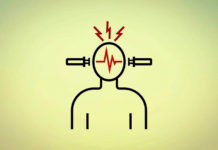Support for SB 614 with Amendment to Supervision Qualifications
Throughout California, the nation, and the world, peer specialists provide services to individuals with mental health challenges. In California, over 6,000 peer specialists are employed. In 2007, the Centers for Medicare & Medicaid Services guided states to create peer certifications. Since then, more than 30 states have created statewide peer certifications, and if Senator Leno’s Senate Bill 614 goes through, so will California
“The Overdiagnosis of ADHD”
The general theme, that various "mental illnesses" are being "overdiagnosed" is gaining popularity in recent years among some psychiatrists, presumably in an effort to distance themselves from the trend of psychiatric-drugs-on-demand-for-every-conceivable-human-problem that has become an escalating and undeniable feature of American psychiatric practice. But the implicit assumptions – that there is a correct level of such labeling, and that the label has some valid ontological significance – are emphatically false.
The Promise of Open Dialogue
Open Dialogue is an innovative, network-based approach to persons experiencing severe psychiatric crises and conditions. Developed at Keropudas Hospital in Tornio, Finland, this way of working has garnered international attention for its outcomes with first time psychosis. Noting the positive interest Open Dialogue has begun to attract in the U.S., publisher Marvin Ross, in a recent Huffington Post blog (11/11/13), argues that before making the global claim that Open Dialogue achieves better results than standard treatment, we need to do more research. I agree.
How entrepreneurial thinking can improve mental health advocacy
I've been working on starting a business that can use market forces to create benefit for our communities. This is called social entrepreneurship. Different models...
An Essay on Finnish Open Dialogue: A Five-Year Follow-Up
It has been five years since I traveled to Western Lapland in Finland to film my documentary “Open Dialogue” on their Open Dialogue Project—the program, as I stated in the film, presently getting the best long-term statistical results in the world for the treatment of first-episode psychosis. My film came out four years ago, and since then I have been screening it around the world, giving lectures about Open Dialogue and my experience in Finland, participating in regular conferences and Q&A sessions about it, receiving daily emails, Facebook messages, blog and Youtube comments about it (as it’s now been free on Youtube for a year), and keeping in regular contact with some of the folks who work there. But I haven’t shared many of my updated opinions in writing, so I wish to do so now.
Please Stop Saying Depression Is Like Diabetes
It seems more and more common for people who consider themselves mental health advocates to make the argument that “mental illness is like physical illness.” Have you heard this “depression is like diabetes” tactic? I have a hard time seeing how this is advocating for those in emotional distress.
The Politics of Systems Change: Lessons Learned from the Launch of the DSM-5 Boycott
Machiavelli had it right. “There is nothing more difficult to take in hand, more perilous to conduct, or more uncertain in its success than to take the lead in the introduction of a new order to things.” Ever since we launched our DSM-5 Boycott three weeks ago, we’ve received support from organizations and individuals but have become entangled in more wrangling than I ever would have anticipated.
Peer-run Organizations Help People with Criminal Justice Involvement Return to the Community
Because of the enormous obstacles confronting individuals with behavioral health conditions who have been incarcerated, many peer-run organizations have risen to the challenge and have created programs to help these people rejoin the community.
Psychiatry Ignores an Elephant in the Room
Large cohort studies of people with a first-episode psychosis provide a unique opportunity for finding out why so many young people with schizophrenia spectrum disorders die at a young age. However, it seems that those psychiatrists who have access to the mortality data generally do not want the facts to come out.
Lingering Doubts About Psychiatry’s Scientific Status
Professor Sir Simon Wessely is a British psychiatrist who works at the Institute of Psychiatry, King's College, London. He is also the new President of the Royal College of Psychiatrists, and in that capacity, he recently wrote his first blog, titled, appropriately enough, My First Blog (May 24, 2014). The article is essentially a perusal of, and commentary on, the program for the RCP's Annual Congress, about which Sir Simon expresses considerable enthusiasm. He also engages in a little cheerleading: " . . . We [the RCP] are the most democratic of colleges. We welcome the views of patients and carers . . . " This statement struck me as odd
The Minds of Men: A Stunning New Film About Covert Mind Control
The importance of a remarkable new film, The Minds of Men, was underscored by otherwise inexplicable recent events surrounding government support of ECT. Without any testing or opportunity for public response, effective December 26 the FDA has approved ECT for infliction upon people with “treatment-resistant depression.”
A Significant Indigenous Scholarship and Another Antipsychiatry Battle
Why is this scholarship important? Because it will fund, create recognition for, and promote research into violence against Indigenous women. It includes not only what is conventionally seen as violence such as murder, rape, and battery, but also violence perpetrated by institutions, including psychiatry.
UN to USA: Forced Treatment is Prohibited
The experience with the UN Working Group on Arbitrary Detention's visit to the US is a watershed for our work against forced psychiatry. Step by step, global and national advocacy support each other as part of a worldwide movement to abolish forced psychiatry using the UN human rights framework.
“Let’s Not Go Overboard About ECT”
In an internet email discussion among a large group of supposedly enlightened mental health professionals, few came forward to outright condemn or ban ECT. One participant responded to my comments with, "It worries me how this debate gets so polarized." This refusal to say or to accept something polarizing is a hallmark of most so-called reformers in the field of mental health.
Antidepressants, Pregnancy, and Autism: Why Wouldn’t Antidepressant Chemicals Affect a Developing Baby’s Brain?
This week another study was published showing that SSRI antidepressant use during pregnancy is associated with increased rates of autism in the children. By my count, this is now the tenth study on this topic and it follows on the heels of previous studies – all of which found links between SSRI antidepressant use in pregnancy and autism in the offspring. Most of these studies were recently reviewed by Man, et al, who also concluded that SSRI antidepressant use during pregnancy is associated with autism in the children. So we now have numerous studies in different human populations all showing a link between SSRI use in pregnancy and autism in the children. Yet, much of the news and blogosphere focus on casting doubts about these findings. What is going on here?
Publication Bias and Meta-Analyses: Tainting the Gold Standard with Lead
For decades the gold standard for medical evidence was the review article - an essay looking at most or (hopefully) all of the research on a particular question and trying to divine a general trend in the data toward some conclusion ("therapy X seems to be good for condition Y," for example). More recently, the format of review articles has shifted - at least where the questions addressed have leant themselves to the new style. The idea has been to look at the original data for all of the studies available, and in effect reanalyze them as though the research participants were all taking part in one gigantic study. By increasing the number of data points and averaging across the vagaries of different studies, a clearer finding might emerge. The meta-analysis has gone on to be revered as a strategy for advancing healthcare. It has vulnerabilities.
What Disability Benefit Trends Tell Us About Psychiatric Treatments and the Economy
If antidepressants are effective, and people with depression are more likely to be prescribed them, then you would expect the consequences of depression to start to lessen. One of those consequences, according to government statistics, is being out of work. But what we see is quite the opposite: Increasing use of antidepressants correlates with increased numbers of people with depression who are out of work and claiming benefits, and increasingly on a long-term basis. And this is at a time when disability due to other medical conditions has fallen.
Charles Spencer’s Story of Boarding School Abuse Is Haunting
But parents are still sending children away to board, and it’s still dangerous.
How Many Deaths Will It Take Till We Know?
Each time I see the initials for Mad In America, MIA, I think of the Vietnam war and lost young men. I remember engraved...
The Sins of Conservatorship: Why Britney Spears Compared It to Slavery
For the last three years of my mother’s life, she was under absolute control of her conservator. If we dared to object to the neglect or abuse, retaliation was certain.
Trauma, Psychosis, and Dissociation
Recent years have seen an influx of numerous studies providing an undeniable link between childhood/ chronic trauma and psychotic states. Although many researchers (i.e., Richard Bentall, Anthony Morrison, John Read) have been publishing and speaking at events around the world discussing the implications of this link, they are still largely ignored by mainstream practitioners, researchers, and even those with lived experience. While this may be partially due to an understandable (but not necessarily defensible) tendency to deny the existence of trauma, in general, there are also certainly many political, ideological, and financial reasons for this as well.
What We Have Always Known but Psychiatry Forgot
When I came off my last medication, my psychiatrist said to me, “You will get sick again.” Psychiatry has always been sure that I would never recover from bipolar disorder.
The Tragedy of Lou Lasagna
In 1956, Lou Lasagna was on his way to being the most famous doctor in the United States; an advocate for controlled clinical trials of both the safety and effectiveness of medication, as well as for a revision to the Hippocratic Oath to include a holistic and compassionate approach to medicine. Then, caught in the nexus of reason, regulation, and the pharmaceutical machine, his star fell.
The Presumption of Incompetence: Why Traditional ADHD Treatments Fail
The two most popular interventions for ADHD are drugs and stringent control. Those who believe in the traditional biological determinist view assert that others must provide the control that people diagnosed with ADHD lack. In this treatment protocol, diagnosed individuals are remanded into treatment that mimics institutional care (i.e., others control their access to resources and their behavior is restrained with drugs). While both of these impositions can yield some short-term benefits, they can also produce unwanted side effects much like what happens when there is incarceration
Why I Became a Critical Psychiatrist
The talk explains my own evolution as a psychiatrist and addresses the development of the Critical Psychiatry Network. I focus on three main areas: psychiatric diagnosis, the influence of the commercial forces of the pharmaceutical industry on medicine in general and psychiatry in particular, and the evolution of the use of neuroleptic drugs (in that order).



















